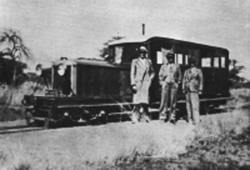Daimler Co Ltd v Continental Tyre and Rubber Co (GB) Ltd facts for kids
The case of Daimler Co Ltd v Continental Tyre and Rubber Co (Great Britain) Ltd was a very important UK company law case from 1916. It happened during the First World War. This case helped decide if a company could be seen as an "enemy" during wartime. It also looked at who truly "controlled" a company.
Contents
What Happened? (The Facts)
Continental Tyre and Rubber Co Ltd was a company that made tyres. Most of its owners (shareholders) were German. All of its directors, who managed the company, were also German. The company's secretary, who handled paperwork, was English.
Continental Tyre sold tyres to another company called Daimler. But then, the First World War started. Daimler became worried. They wondered if paying Continental Tyre would be against the law. There was a rule against "trading with the enemy" during wartime. Daimler wanted the court to decide if it was safe to pay.
Court Decisions
The case went through several courts. Each court had to decide if Continental Tyre was an "enemy" company.
First Court Decision
The first judge, Scrutton J, quickly decided that the contracts were valid. He said Daimler could pay.
Court of Appeal's View
The case then went to the Court of Appeal. Most judges there agreed with the first decision. They said that a company does not change its nature just because a war starts. They believed Continental Tyre was still an English company. This was true even if its owners or directors were German.
Lord Reading CJ, one of the judges, said that a company is a "living thing." He explained it has its own separate existence. It is not just a name or a trick. He said the company was not formed for any dishonest reason. It was a legal body created by law.
However, one judge, Buckley LJ, disagreed. He felt that even though a company is a separate legal person, it could still be an "enemy." He said a company has no body or feelings. It cannot be loyal or disloyal on its own. He believed a company's thoughts and intentions come from its owners.
House of Lords' Final Decision
Finally, the case went to the House of Lords. This was the highest court in the UK at the time. The judges there all disagreed with the lower courts. They said that Continental Tyre *could* be seen as an "enemy" company.
Lord Parker explained why. He said that even though a company is separate from its owners, the owners' character can affect the company. He said the rule against trading with the enemy depends on who the "enemy" is.
He used the idea of "control." He said that the actions of a company's directors and managers are the company's actions. If these people are enemies, then the company can become an enemy. Since the German directors controlled Continental Tyre, the company was considered an enemy.
The other judges mostly agreed with this idea of "control."
Why This Case Was Important
The Daimler case was very important. It showed that during wartime, a company's nationality could change. This depended on who controlled it. Even if a company was set up in the UK, it could be seen as an "enemy" if its real control was with people from an enemy country.
This decision influenced later laws. For example, during World War II, the Trading with the Enemy Act 1939 was passed. It clearly stated that a company is an "enemy" if it is controlled by an enemy person.
The idea of "control" is still important in law today. It helps courts understand who truly runs a company.
See also
- UK company law


